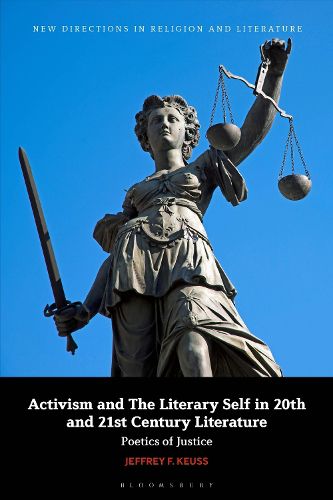Readings Newsletter
Become a Readings Member to make your shopping experience even easier.
Sign in or sign up for free!
You’re not far away from qualifying for FREE standard shipping within Australia
You’ve qualified for FREE standard shipping within Australia
The cart is loading…






Exploring how Shusaku Endo, Ta-Nehisi Coates, Thomas Merton, Marilynne Robinson, Cormac McCarthy, and Octavia E. Butler engage with social justice and activism, this book explores the significant role that literature plays in the formation of justice.
Jeff Keuss foregrounds literature and the role of poetics as both a method and a frame by which justice can not only be understood but uniquely positioned to transform and redeem the moral call on individuals in ways that some recent philosophical and ethical projects do not. He examines how these authors are representative of a theme in literature which is the "turn to justice" as a literary form and discusses how these authors' engagement with activism challenges isolated and anxious models of contemporary selfhood.
Demonstrating how these writers utilize fiction, across different contexts of race, gender, culture, and theological denominations, to present themes of justice in communion with others, Keuss provides new insights into "communal selfhood" and shows how we can use this idea to shape our ideas of ethics, morality, activism, and justice.
$9.00 standard shipping within Australia
FREE standard shipping within Australia for orders over $100.00
Express & International shipping calculated at checkout
Exploring how Shusaku Endo, Ta-Nehisi Coates, Thomas Merton, Marilynne Robinson, Cormac McCarthy, and Octavia E. Butler engage with social justice and activism, this book explores the significant role that literature plays in the formation of justice.
Jeff Keuss foregrounds literature and the role of poetics as both a method and a frame by which justice can not only be understood but uniquely positioned to transform and redeem the moral call on individuals in ways that some recent philosophical and ethical projects do not. He examines how these authors are representative of a theme in literature which is the "turn to justice" as a literary form and discusses how these authors' engagement with activism challenges isolated and anxious models of contemporary selfhood.
Demonstrating how these writers utilize fiction, across different contexts of race, gender, culture, and theological denominations, to present themes of justice in communion with others, Keuss provides new insights into "communal selfhood" and shows how we can use this idea to shape our ideas of ethics, morality, activism, and justice.